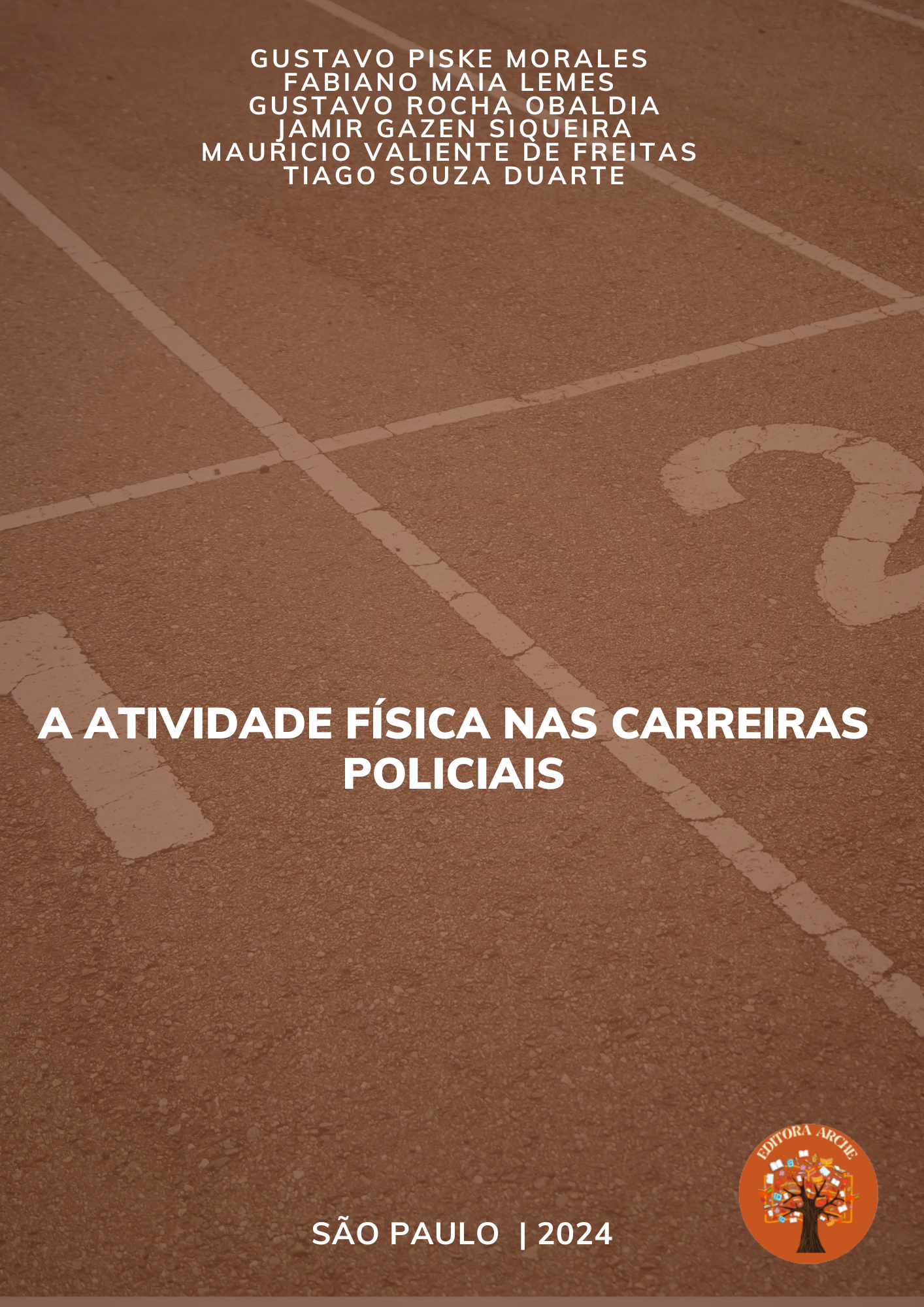PHYSICAL ACTIVITY IN POLICE CAREERS
Abstract
PRESENTATION
It is with great enthusiasm that we present this digital book, which aims to explore and analyze the nuances of physical fitness in the performance of police officers, directly influencing their ability to perform demanding and challenging tasks in the daily routine of the profession. In a work environment that involves risky situations, such as chases, physical confrontations, patrols and special operations, adequate physical condition can be decisive for the success or failure of an intervention. The physical preparation of police officers is not only a matter of individual health, but an operational necessity that impacts public safety and the protection of the community.
In addition, constant assessment through physical fitness tests is a common practice in police forces, ensuring that professionals are always ready to respond to the demands of the role. Tests such as the 12-minute run, sit-ups, push-ups and pull-ups are widely used to measure cardiovascular endurance, muscular strength and agility, essential skills for effective performance in situations of high physical demand.
Chapter 1, "The History of Physical Education", reflects its evolution from Antiquity, when physical activities were essential for survival and valued by the Greeks and Romans, to the present day. In Greece, the Olympic Games and the balance between body and mind were highlighted, while Rome focused on military preparation. During the Middle Ages, there was a decline due to the influence of the Church, but the Renaissance rescued its educational value. In the 18th century, gymnastics systems emerged in Europe, and in Brazil, a discipline was institutionalized in the 19th century. Today, Physical Education integrates sciences such as physiology and pedagogy, promoting health and well-being. In Chapter 2, entitled "Physical Education in Contemporary Police Activity", we will explore how physical activity is essential in police life, from selection to ongoing career maintenance, contributing to operational performance, general health and mental well-being. Demanding tests and regular training programs ensure preparation for the physical demands of the profession, such as pursuits and emergencies. Despite challenges such as intense schedules and the need for inclusion, physical conditioning is crucial for readiness and effectiveness in the performance of duty, in addition to acting as a form of self-care and prevention.
In Chapter 3, "Physical preparation in police careers", the text highlights how physical preparation is fundamental to the safety and efficiency of police officers, covering everything from admission through tests such as running, sit-ups, push-ups and pull-ups to ongoing training. These tests assess endurance, strength and flexibility, essential for operations and general health. In addition, physical practice reduces stress and prevents injuries, being necessary for the physical and mental demands of the profession.
Finally, in Chapter 4, “Maintaining physical fitness and the challenges faced,” we will address the difficulties in maintaining the physical demands of Brazilian police officers throughout their careers. This is essential for health and efficiency at work, but it faces challenges such as a lack of infrastructure, individual physical limitations, and exhausting routines. Despite efforts by corporations to offer training and adequate spaces, many officers deal with cultural and structural barriers that make it difficult to exercise regularly. More inclusive programs and an organizational culture focused on well-being are essential to improving the physical preparation and development of police officers in the profession.
By the end of this book, we hope that readers will develop a deep understanding of the challenges and possibilities that Physical Education offers in the police context. We will explore the relevance of physical fitness in the context of police activity, discussing its influence on operational efficiency, injury prevention, and the general well-being of security officers. May this e-book serve as a source of knowledge and inspiration for all those involved in the search for innovative and effective solutions in the field of police physical preparation.
Downloads

Downloads
Published
How to Cite
License
Atribuição CC BY
